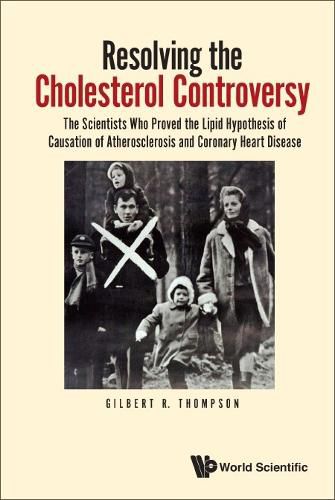Readings Newsletter
Become a Readings Member to make your shopping experience even easier.
Sign in or sign up for free!
You’re not far away from qualifying for FREE standard shipping within Australia
You’ve qualified for FREE standard shipping within Australia
The cart is loading…






Resolving the Cholesterol Controversy recounts the science and scientific personalities behind the chain of discoveries upon which the lipid hypothesis of atherosclerosis was built.The narrative covers a period of just under 100 years, starting with Anitschkow's experiments with cholesterol-fed rabbits in 1913, and recounts the endeavours and achievements of the leading actors in this protracted scientific drama. The cast is drawn from an extraordinary variety of scientific disciplines: pathology, biophysics, epidemiology, nutrition, cardiology, lipidology, genetics, microbiology, pharmacology, and clinical trial design. Most of the scientists believed that cholesterol played a causal role in atherosclerosis and cardiovascular disease, but there were some who dissented strongly from this conclusion.The breadth of scientific disciplines involved in proving the lipid hypothesis is matched by the geographical spread of the participants. Anitschkow worked in Russia, Endo discovered the first statin in Japan, their commercial development by Merck took place in the USA and evidence of benefit from lowering cholesterol came from trials conducted in Scandinavia and the UK. The subsequent meta-analysis of these statin trials in 2005 proved the validity of the lipid hypothesis beyond any doubt. The history of how this all came about and its impact upon health policy and medical practice is recalled here in Resolving the Cholesterol Controversy.
$9.00 standard shipping within Australia
FREE standard shipping within Australia for orders over $100.00
Express & International shipping calculated at checkout
Resolving the Cholesterol Controversy recounts the science and scientific personalities behind the chain of discoveries upon which the lipid hypothesis of atherosclerosis was built.The narrative covers a period of just under 100 years, starting with Anitschkow's experiments with cholesterol-fed rabbits in 1913, and recounts the endeavours and achievements of the leading actors in this protracted scientific drama. The cast is drawn from an extraordinary variety of scientific disciplines: pathology, biophysics, epidemiology, nutrition, cardiology, lipidology, genetics, microbiology, pharmacology, and clinical trial design. Most of the scientists believed that cholesterol played a causal role in atherosclerosis and cardiovascular disease, but there were some who dissented strongly from this conclusion.The breadth of scientific disciplines involved in proving the lipid hypothesis is matched by the geographical spread of the participants. Anitschkow worked in Russia, Endo discovered the first statin in Japan, their commercial development by Merck took place in the USA and evidence of benefit from lowering cholesterol came from trials conducted in Scandinavia and the UK. The subsequent meta-analysis of these statin trials in 2005 proved the validity of the lipid hypothesis beyond any doubt. The history of how this all came about and its impact upon health policy and medical practice is recalled here in Resolving the Cholesterol Controversy.